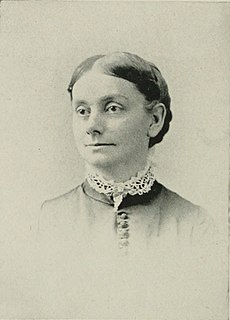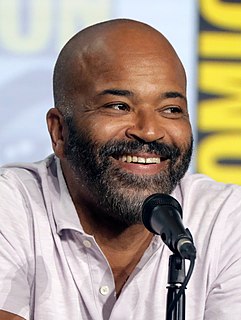A Quote by Alfred Lord Tennyson
And others' follies teach us not,
Nor much their wisdom teaches,
And most, of sterling worth, is what
Our own experience preaches.
Related Quotes
Sports can unite a group of people from different backgrounds, all working together to achieve a common goal. And even if they fall short, sharing that journey is an experience they'll never forget. It can teach some of the most fundamental and important human values: dedication, perseverance, hard work, and teamwork. It also teaches us how to handle our success and cope with our failure. So, perhaps the greatest glory of sport is that is teaches us so much about life itself.
Experience is the best teacher. But in our day and time, what we need is wisdom, because wisdom overcomes experience, because experience is wisdom, but there's a level of wisdom that overcomes the experience, and that's the experience that's already lived by others. I'm not trying to repeat the histories. I already learned from what they did.
Our idealists must own that their velleity to abolish all suffering is most fully expressed in the Fifth Wisdom of Lamaism, the doctrine that teaches that "no durable happiness, nor yet security, for any sentient being can exist while others are a prey to suffering." That truth cannot be questioned and you may take it to heart: in practical terms it means we got ourselves born on the wrong planet - in the wrong universe.
The essence of Theosophy is the perfect harmonizing of the divine with the human in man, the adjustment of his god-like qualities and aspirations, and their sway over the terrestrial or animal passions in him. Kindness, absence of every ill feeling or selfishness, charity, goodwill to all beings, and perfect justice to others as to oneself, are its chief features. He who teaches Theosophy preaches the gospel of goodwill; and the converse of this is true also — he who preaches the gospel of goodwill, teaches Theosophy.
Emotional dependence is the opposite of emotional strength. It means needing to have others to survive, wanting others to "do it for us," and depending on others to give us our self-image, make our decisions, and take care of us financially. When we are emotionally dependent, we look to others for our happiness, our concept of "self," and our emotional well-being. Such vulnerability necessitates a search for and dependence on outer support for a sense of our own worth.
We don't think much about how our love stories will affect the world, but they do. Children learn what's worth living for and what's worth dying for by the stories they watch us live. I want to teach our children how to get scary close, and more, how to be brave. I want to teach them that love is worth what it costs.
To recognize our bias toward error should teach us modesty and reflection, and to forgive it should help us avoid the inhumanity of thinking we ourselves are not as fallible as those who, in any instance, seem most at fault. Science can give us knowledge, but it cannot give us wisdom. Nor can religion, until it puts aside nonsense and distraction and becomes itself again.
Life is worthy of the name only when it reflects Reality in action. No university will teach you how to live so that when the time of dying comes, you can say: I lived well I do not need to live again. Most of us die wishing we could live again. So many mistakes committed, so much left undone. Most of the people vegetate, but do not live. They merely gather experience and enrich their memory. But experience is the denial of Reality, which is neither sensory nor conceptual, neither of the body, nor of the mind, though it includes and transcends both.
The least livable life is the one without coherence-nothing connects, nothing means anything. Stories make connections. They allow us to see our past, our present, and our future as interrelated and purposeful.... The stories we value most reassure us that life is worth the pain, that meaning is not an illusion, and that others share our experience with us.







































